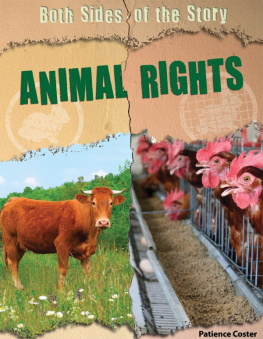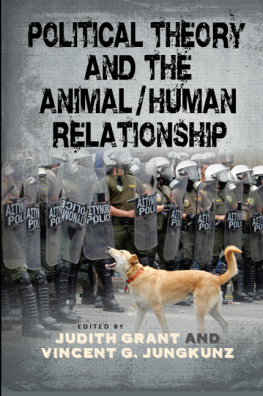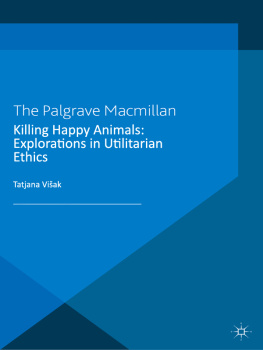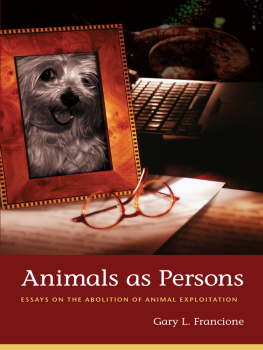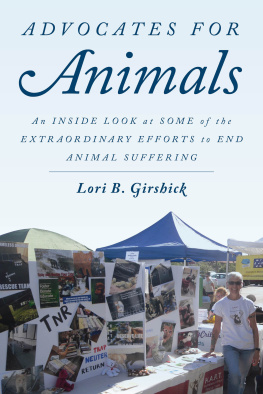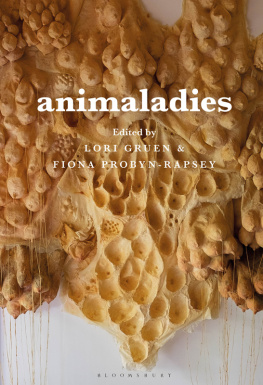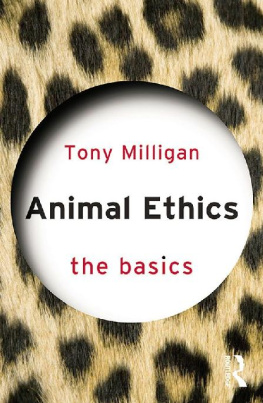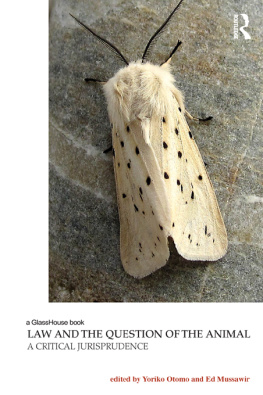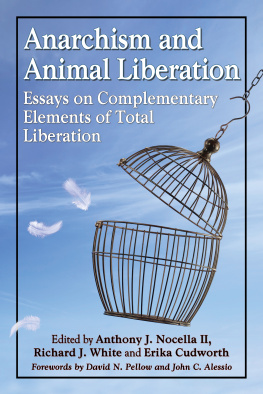Bob Torres - Making a Killing: The Political Economy of Animal Rights
Here you can read online Bob Torres - Making a Killing: The Political Economy of Animal Rights full text of the book (entire story) in english for free. Download pdf and epub, get meaning, cover and reviews about this ebook. year: 2007, publisher: AK Press, genre: Politics. Description of the work, (preface) as well as reviews are available. Best literature library LitArk.com created for fans of good reading and offers a wide selection of genres:
Romance novel
Science fiction
Adventure
Detective
Science
History
Home and family
Prose
Art
Politics
Computer
Non-fiction
Religion
Business
Children
Humor
Choose a favorite category and find really read worthwhile books. Enjoy immersion in the world of imagination, feel the emotions of the characters or learn something new for yourself, make an fascinating discovery.
- Book:Making a Killing: The Political Economy of Animal Rights
- Author:
- Publisher:AK Press
- Genre:
- Year:2007
- Rating:3 / 5
- Favourites:Add to favourites
- Your mark:
Making a Killing: The Political Economy of Animal Rights: summary, description and annotation
We offer to read an annotation, description, summary or preface (depends on what the author of the book "Making a Killing: The Political Economy of Animal Rights" wrote himself). If you haven't found the necessary information about the book — write in the comments, we will try to find it.
Making A Killing is sure to spark wide debate in the animal rights and anarchist movements for years to come.
Table Of Contents:
I Taking Equality Seriously
II Chained Commodities
III Property, Violence, and the Roots of Oppression
IV Animal Rights and Wrongs
V You Cannot Buy the Revolution
Advance praise for Making A Killing
Bob Torres Making a Killing draws a very straight line between capitalism and the oppressive system of animal agribusiness. Drawing from social anarchist theory, Torres provides a convincing argument that in order to fight animal exploitation, we must also fight capitalism and, in doing so, animal rights activists will need to reconsider their methods and redirect their focus. While his critiques of the animal rights movements large organizations may not earn him friends in high places, such considerations are crucial to keeping the movement on track and for preventing stagnation.
Making a Killing is an important work from a new voice in animal advocacy that will surely spark heated discussions amongst activists from all corners of the movement. Ryan MacMichael, vegblog.org
In Making A Killing: The Political Economy of Animal Rights, Bob Torres takes an important and timely look at the animal rights movement, calling for a synthetic approach to all oppression, human and animal. His analytical framework draws together Marxism, social anarchist theory, and an abolitionist approach to animal rights to provide a timely social analysis that will no doubt have profound effects on the animal rights movement literature. Gary L. Francione
Distinguished Professor of Law, Rutgers University
Bob Torress socioeconomic analysis of nonhuman animal use is a welcome and important addition to the understanding of human-nonhuman relations at the beginning of the 21st century. In particular, Making a Killing, makes vital a contribution to understanding the role of the property status of animals and the continuing strength of various welfarist positions on the ethics and indeed the economics of the human utilisation of other animals. Making a Killing will become required reading for social scientists and others interested in modern social movements and the socioeconomic forces that shape their activities and their claims-making. Dr. Roger Yates, Lecturer in sociology at University College, Dublin, Republic of Ireland
This is the book Ive been waiting for. Making A Killing is a rare and powerful example of first-rate scholarship, a searing critique, and lively declaration of the rights of animals and humans. You will walk away from this book with a clear understanding as to why social justice movements for people must take animal rights seriously, and vice versa. Bob Torres has forever deepened my thinking about these relationships. David Naguib Pellow, vegetarian, animal rights and anti-racist activist, and Professor of Ethnic Studies, University of California, San Diego; and author of Garbage Wars: The Struggle for Environmental Justice in Chicago and Resisting Global Toxics: Transnational Movements for Environmental Justice
Bob Torres is assistant professor of sociology at St. Lawrence University, received his PhD from Cornell, and is co-author of Vegan Freak: Being Vegan in a Non-Vegan World. His writings have appeared in Critical Sociology, The Journal of Latinos and Education, International Journal of Occupational and Environmental Health, and Satya magazine.
Bob Torres: author's other books
Who wrote Making a Killing: The Political Economy of Animal Rights? Find out the surname, the name of the author of the book and a list of all author's works by series.



